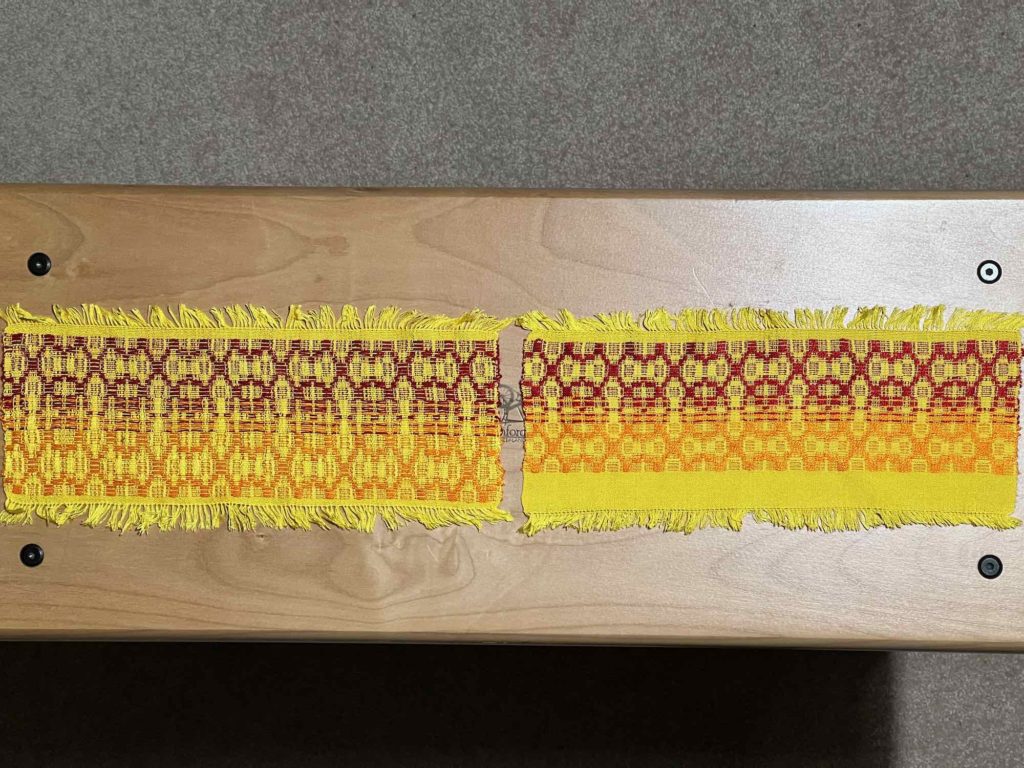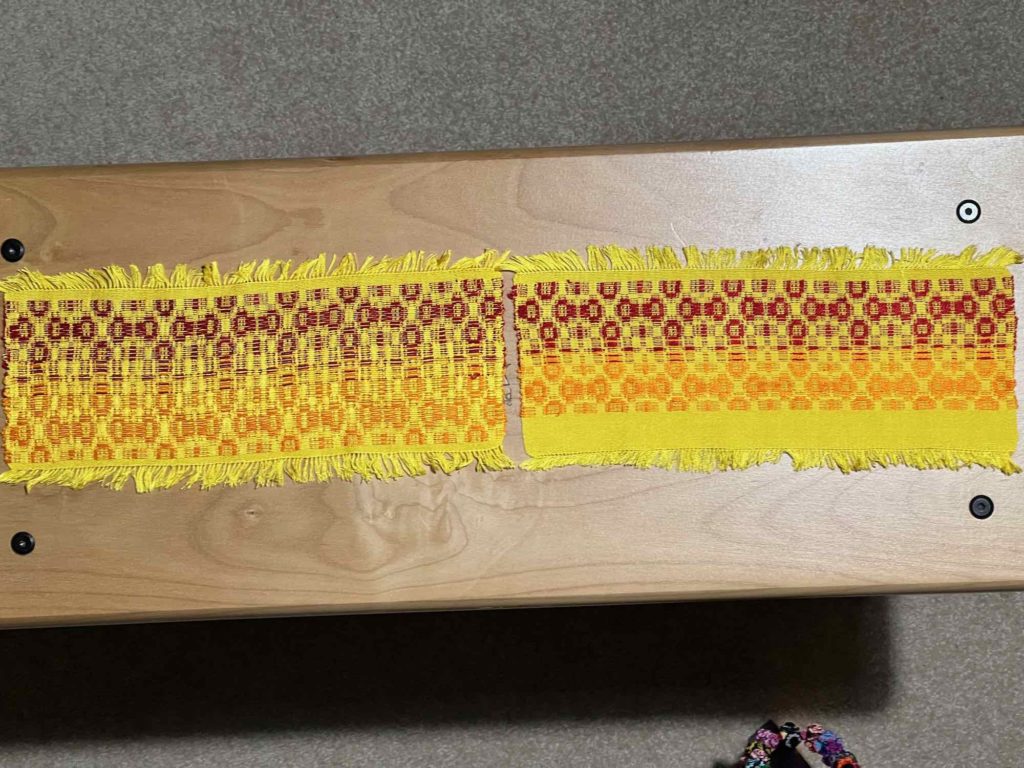The first piece to be woven on this warp was a sample to check the sett, beating, colour blending etc.
I started out with hemstitching and 2.5cm plainweave with 60/2 silk, followed by orange and red pattern weft sections, ending with a small band of plainweave and hemstitching.
I wanted to remove this from the loom so that I could finish the cloth (wash and press) and check its feel etc. I decided to use the Saori clipping/tying rod before removing the 1st sample from the loom so that I would lose less of the warp length.
This first sample was hand washed in warm water with a gentle laundry soap, loose ends were trimmed and the piece pressed with an iron on “silk” setting. After drying I worked it in my hands to soften the fabric. I decided that the beating may have been a little too firm, so I wove a second sample at the same sett but with lighter beating.
In order to remove this piece form the loom with minimal warp loss, I decided to use the flour paste method shown by Jane Stafford in Season 6, Episode 3, video 6 (weave 1cm plainweave, insert stick, weave another 1cm and coat weaving with flour/water paste). Once the paste was dry, I cut the fabric from the loom and processed it as for the 1st piece. I decided that I prefer this method of fabric removal as the warp was held more evenly that with the Saori rod and there is less loom loss.
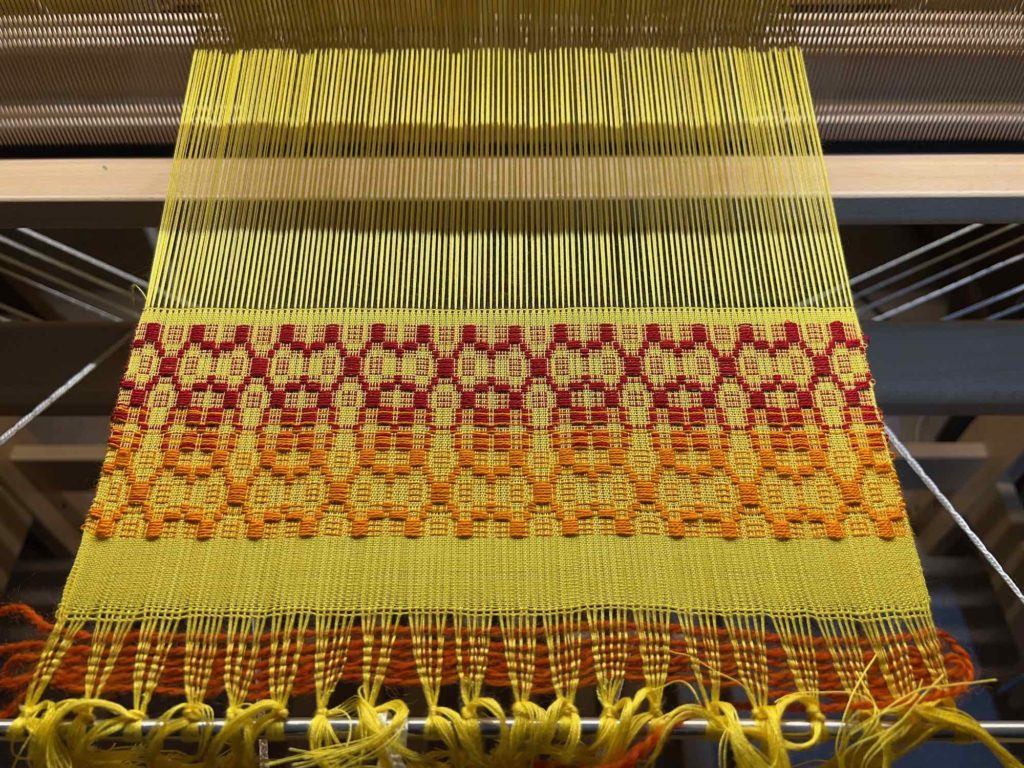
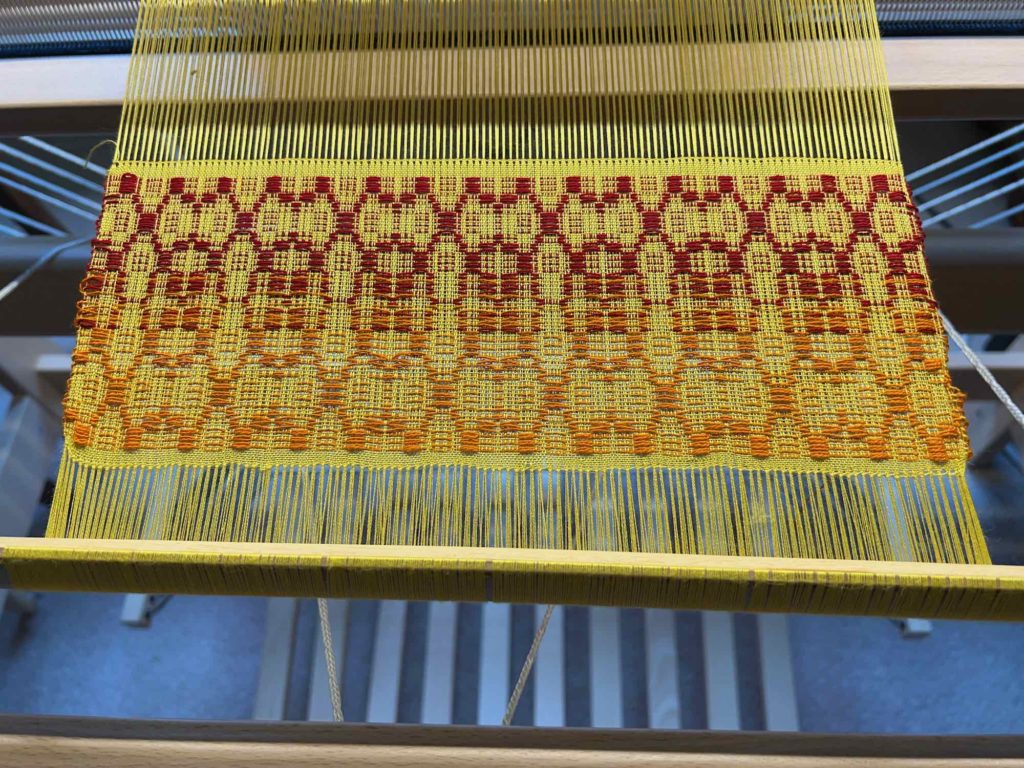
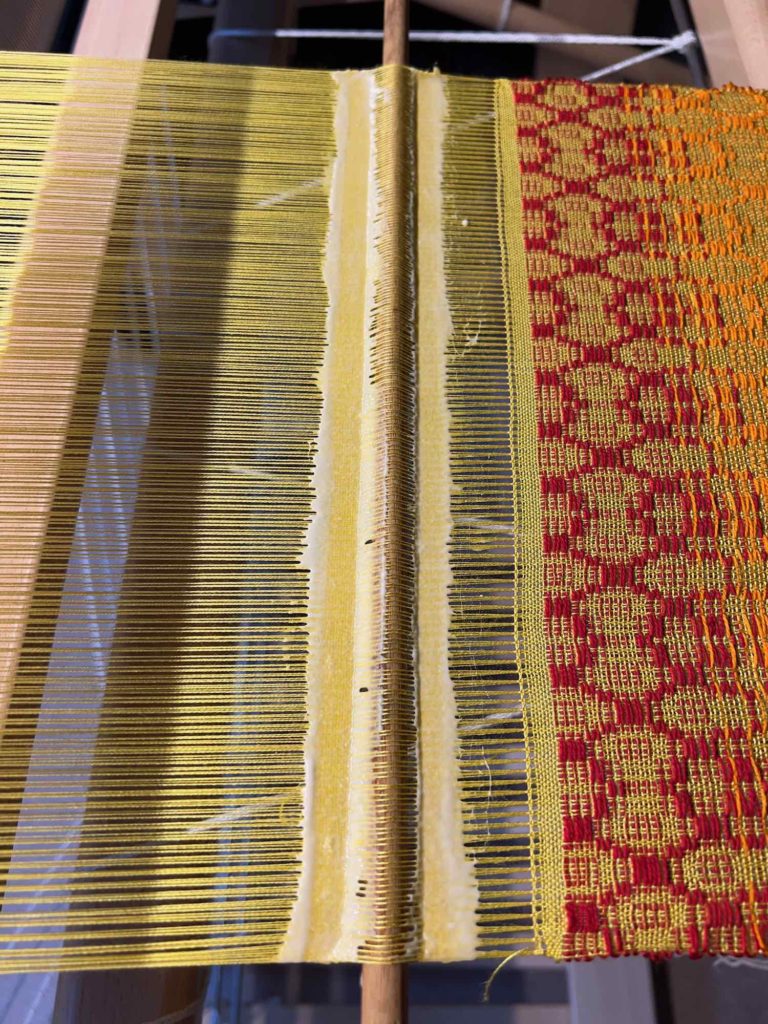
1st piece vs 2nd piece
| 1st piece | 2nd piece | |
| Pre-wash | Forgot to measure | 11×29.5cm |
| Post-wash | 10.25x28cm | 10.5x29cm |
The coloured section of each piece has the same number of picks. The table below shows the post-wash size of each colour section.
| 1st piece | 2nd piece | |
| Orange | 3.5cm | 4.6cm |
| Red | 4cm | 4.6cm |
The 2 samples feel a little different from each other – the 2nd is slightly softer than the 1st.
However, the pattern in the 1st piece is more pleasing to look at – it is more defined and less elongated than that of the 2nd piece.
I will attempt to weave the scarves as in the 1st sample.
